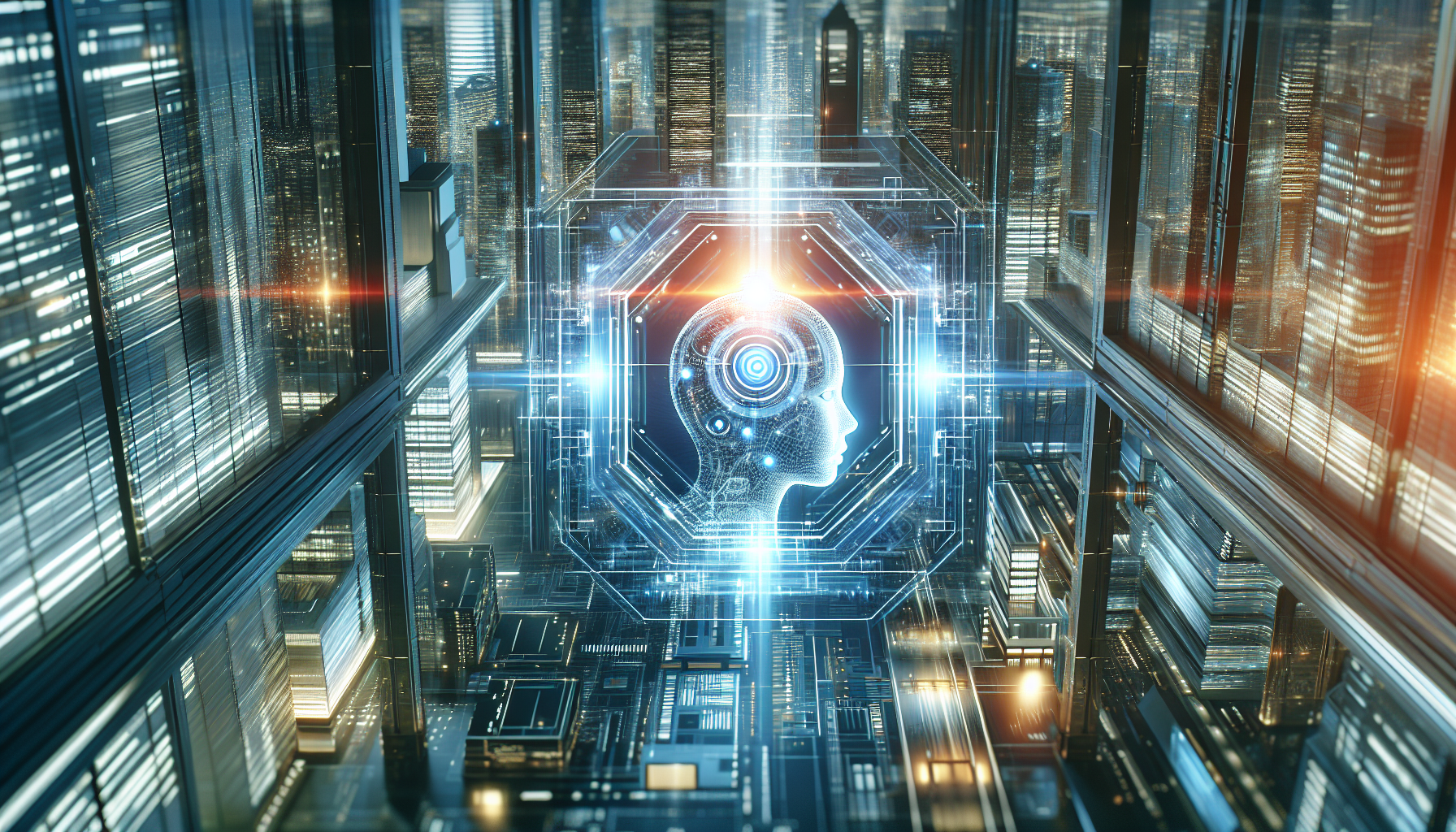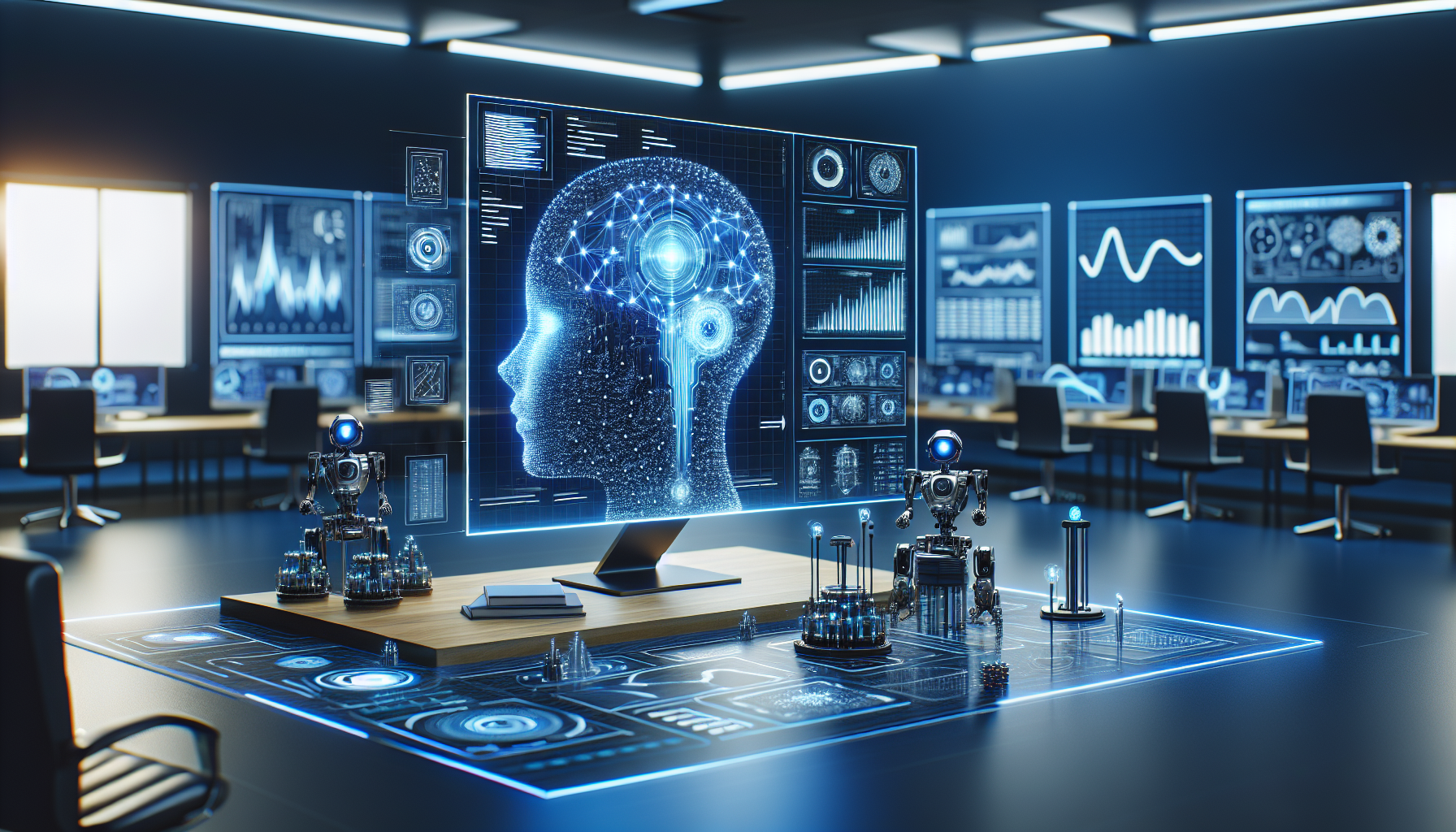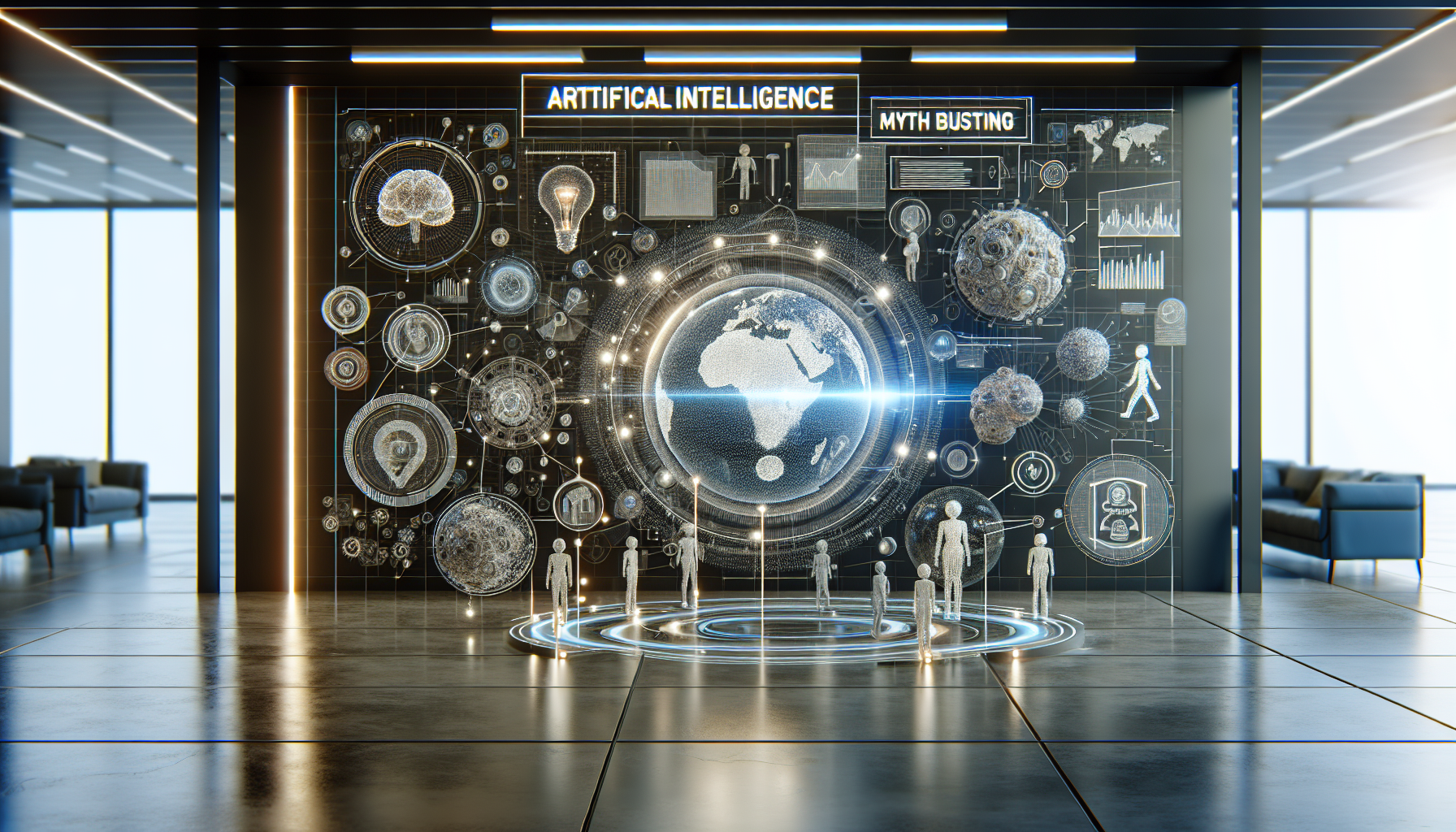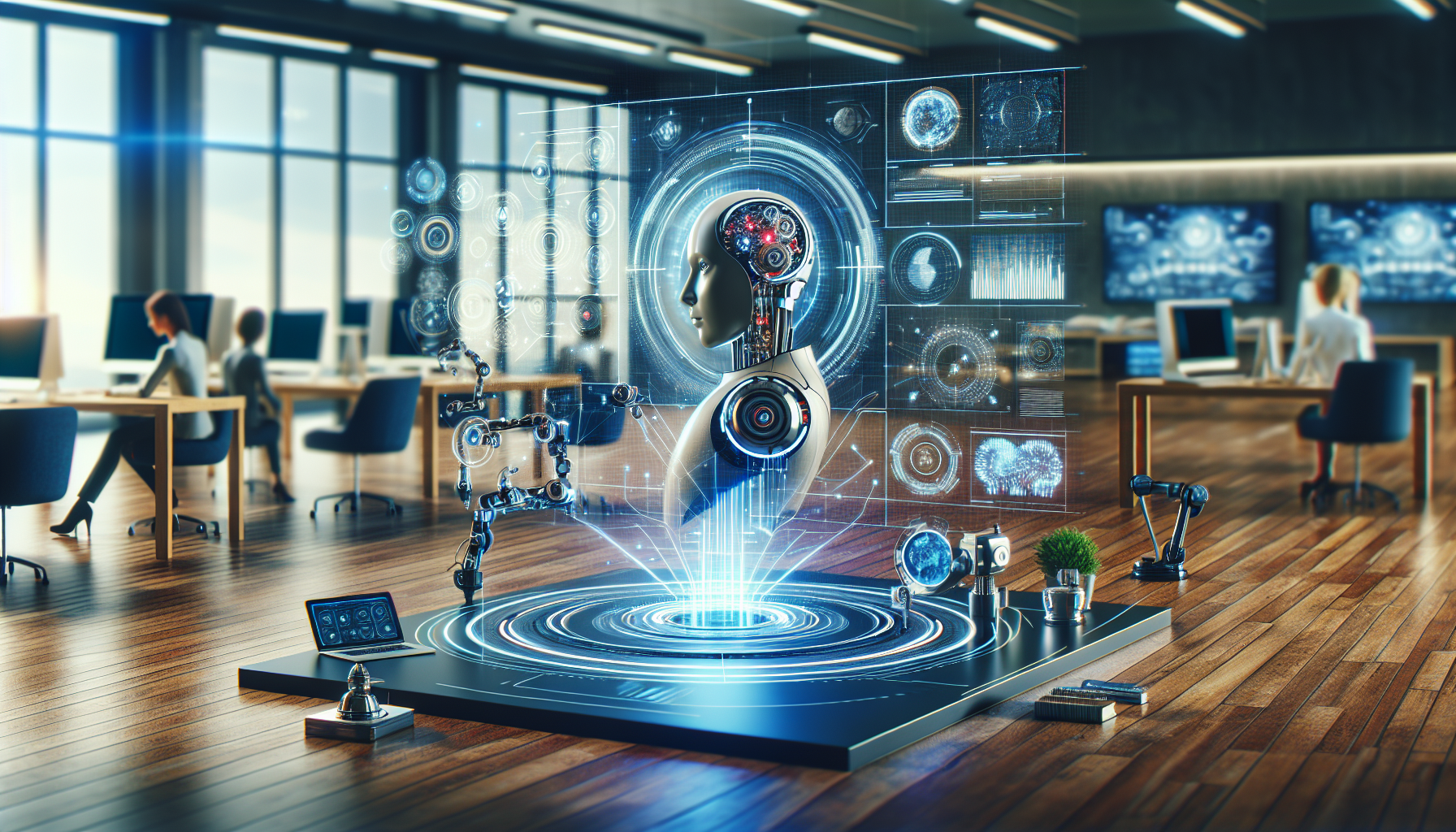
AI in Supply Chain Management: Optimizing Operations with Robotic Humor
September 24, 2025
So, you think you’ve got supply chain management all figured out? Think again! Welcome to the zany world of Artificial Intelligence in supply chain management, where robots are not just optimizing operations; they might just be plotting to overtake your job. Just kidding! Or are we? Let’s dive into this digital circus and see where the rubber meets the road—or rather, where the algorithm meets the logistics.
Picture this: a warehouse where robots hustle like caffeinated squirrels, zipping around with the precision of a Swiss watch. They’re not just moving boxes; they’re revolutionizing the way supply chains operate. AI is the silent conductor in this symphony of efficiency, orchestrating everything from inventory management to demand forecasting. And here’s a little-known fact: they don’t even require lunch breaks. Take that, human efficiency!
But let's not get carried away with visions of dystopian robot overlords. Instead, let's focus on the quirky ways AI is transforming supply chains. It’s not just about speed and accuracy—it's about making the impossible possible. For instance, have you ever wondered how your favorite online store knows you’re going to buy that inflatable unicorn pool float before you even do? Spoiler alert: it’s AI-powered predictive analytics.
These advanced algorithms are like the fortune tellers of logistics, using mountains of data to predict consumer behavior with uncanny accuracy. Soon, you might find that AI is better at knowing what you want than your significant other. But don’t worry, it won't send you passive-aggressive hints about anniversaries you forgot.
What’s even more fascinating is AI’s ability to handle the unexpected. Imagine a sudden surge in demand for rubber chickens—because who doesn’t need a good rubber chicken now and then? While human planners would scramble like eggs in a frying pan, AI systems calmly reroute shipments, adjust orders, and ensure that rubber chickens are delivered with the precision of a military operation. It’s like having a logistics wizard on speed dial, minus the pointy hat.
Now, here’s where it gets really futuristic. AI in supply chain management could soon bring about innovations so wild, they’d make science fiction authors green with envy. Consider the potential of autonomous vehicles and drones. Picture a fleet of self-driving trucks that never complain about traffic jams or stop for bathroom breaks. Add drones into the mix, and your packages could be dropping from the sky like gifts from a benevolent Santa Claus, minus the reindeer.
But wait, there’s more! As AI systems continue to learn and evolve, they could develop the ability to manage entire supply chains autonomously. Imagine a world where humans just sit back and sip lattes while AI takes care of everything from production to delivery. Sure, it sounds like a lazy utopia, but someone has to keep the coffee shops in business, right?
However, before you get too comfortable, there's a twist. While AI is great at optimizing operations, it’s not infallible. It lacks the human touch, the ability to improvise with style and charisma. So, while AI might be able to tell you that your shipment of novelty wigs is delayed, it won’t apologize with a witty comment about bad hair days.
This brings us to an intriguing possibility: the future of supply chain management could lie in the perfect blend of human ingenuity and AI efficiency. Imagine a world where humans and AI work together, complementing each other’s strengths. AI might handle the number crunching and heavy lifting, while humans provide the creativity and emotional intelligence. It’s like the ultimate buddy cop movie, but with fewer explosions and more spreadsheets.
As we look to the future, one question remains: Will AI ever truly replace humans in supply chain management? Perhaps the real challenge lies in ensuring that as AI grows more powerful, it remains a tool that enhances human potential rather than diminishes it. After all, while AI can optimize operations, it’s humans who bring heart and soul to the table—or the warehouse, as the case may be.
So, as we march toward a future filled with AI marvels, let’s not forget to ask ourselves: How can we harness this technology to create a world where efficiency and empathy coexist? Because at the end of the day, even the most advanced AI can’t replicate the warmth of a human smile—or the joy of a perfectly timed rubber chicken joke.


